It is interesting to read about people’s childhoods, to see if they were similar to yours, or different. Here are a few snippets of my early years. Do you have pleasant memories of your childhood, or was it difficult? Did your parents stay together? What was life like for you where you lived?
I was born in Cheshire, England. My father was serving at that time with the United States Air Force, stationed in England at Burtonwood, during the Korean War. I was the first of three children—all boys. My grandmother, Florence, liked my father very much and he would tease her and call her “Flo-o-oreee” in his Missouri accent.
New Dad
Father had been transferred back to the United States before my youngest brother was born. Mother was to follow on with the children but she didn’t. Dad had no choice but to start proceedings and eventually they were divorced.
Mother remarried and I had a stepfather. While they dated we boys called him Geoff. Mother told us we will need to be calling him Dad, and I was fine with that.
We lived in a Council house. When I was four I made the coal fire early one morning to please Mother and save Dad some work. This was the only fire in the house. It would go out overnight and had to be started each morning. I overbuilt the fire, choking it of oxygen, and it went out. Still, my parents were positive in their praise, even though it took Dad much more time to completely rebuild it and get it started.
I began school at four years old. For my first day at school Mother took me but thereafter I had to find my own way there. I recall thinking that I must remember how to get to school if I was to find my way again the next day. There was a morning and afternoon playtime (recess). When afternoon playtime came around I thought it was hometime. The teacher, when she saw me leaving, figured I had had enough of school and was going home to Mum—so she let me go. I started walking out the school gates and I wondered why no-one else was leaving. Nevertheless I pressed on.
As I neared home I saw a lot of children playing at the school and thought that they were lucky children, waiting for their mothers to come and collect them. My mother and grandmother were at home. I opened the back door slowly and they thought it was an intruder. When they saw it was me, they were relieved and presumed I didn’t like school and had come home. It was not until years later when I spoke of the incident to my mother that she found out what really happened.
Name Difficulties
I had to learn to answer my name when the register was called. A boy with a one syllable surname, Keith Flood, had trouble answering “here” when his name was called. I also had trouble answering “Willoughby”—I was only four years old and it is a long name to remember. I felt dumb like Keith Flood. There was even less room to doubt our dumbness when the teacher rebuked us: “Keith Flood and Richard Willoughby will have to learn to answer their names!” I felt really stupid.
A similiar experience occurred when the class was learning to write their names. Derek Farr sat in front of me, and when the teacher saw that I had difficulty writing my name she said, “Derek can write his name, why can’t you?” I thought, “Farr, that’s f-a-r, then add r again, only four letters. There are, hmmm, 1, 2, 3 … 10 letters in my name and which way around does the gh go?” This was my first realization that teachers don’t know everything which placed me on the path to later learning to check important information for reliability. When I was taught the word though it made it easy to write Willoughby, especially as the pronounciation matched.
Reading
I recall learning the alphabet and as soon as I could read a few words I was excited to try out my skills at home in reading whatever book I could find. I spent hours figuring out how to read words out of an adult encyclopedia, which was one of the few books we owned.
I was fascinated by astronomy. I couldn’t grasp the concept of constellations so I focused on the planets. In the first sentence of reading about Jupiter I came across the words aphelion and perihelion. I couldn’t hardly read the words, much less pronounce them. However, in the context of the distances from the Sun, it dawned on me that perihelion was the closest distance that Jupiter came in it’s orbit and aphelion was the furthest. I spent days trying to figure out the math section in the encyclopedia, which was silly of me because it was way beyond my years. I look back on those early school days when I was taught to read with very fond memories. It opened up a world where I could choose what to learn, at a very early age.
East Park
I would go with my brothers to the East Park. We used to take the long walk to the park, rather than take our bicycles, for we feared they would be stolen. We made The Park an all day event, with activities like boating, bowls, soccer, running around the band stand and hide ‘n’ seek. The neighborhood bully asked us how to get to the park—we wouldn’t tell him, and we ran off. The next day, about a third of the way to the park, the bully jumps out from behind a wall. That surprised us and we couldn’t get away but all he wanted was for us to show him the way to The Park. We did and he disappeared for the rest of the day and gave us no trouble.
Another day, my brother and I were returning from the East Park when in the distance we heard a shout behind us, “Come here!” We carried on walking and soon an angry boy, The Big Kid rode up on his bike. He said, “Why didn’t you come when I called you?” My brother said, “It’s a free country!” for which The Big Kid gave him a fist in the face, and a bloody nose flowing freely, spilling onto the footpath.
My brother was out of the fight so I put up my fists, and with resigned trepitation, was ready for the worst. The Big Kid said “That won’t do you any good, you can’t hurt me.” To prove his point, he told me to try something. I punched him in the stomache but it did no good. I turned to my brother and said, “Come on, let’s get him together” but he was understandably still tending to his nose. The Big Kid then said, “Next time, come when I tell you to,” and took off. I diplomatically refrained from making any comments about freedom. I never saw him again.
Prayer
Mother was Catholic and my stepfather never mentioned religion but was a hard worker and was a good influence. If I asked him to do something that he thought I could do for myself he would say, “Use your own initiative.”
We never went to church as a family or individually but when I was very young I recall my mother telling me that there was “God the Father, God the Son, and God the Holy Ghost.” She said I can pray to God the Father and ask for what I needed. I could understand asking for what I wanted, a young child knows how to do that. She then said that you have to have faith. I didn’t understand that, I said to myself, what’s faith? But the seeds were sown for my faith later in life.
Girls
One girl that I remember was Jean Tilley. Jean was brilliant at math and I would compete to try and finish before her. I was never able to, she was too smart and too fast and would always finish before everyone else.
One morning, just before the big math test, I turned around to Jean to make a comment. We used fountain pens, every student providing his own, unless you used a school pen which had to be dipped in an ink-well every few seconds. As I turned around I inadvertently knocked Jean’s fountain pen to the floor with the back of my chair. The nib was bent on impact so Mr. Bellfield straightened it with a pair of pliers he kept for that purpose. The weekly Monday morning test started and after a few minutes Jean muttered something. She increasingly got more agitated and frustrated and eventually burst into tears. Mr. Bellfield put her into the storeroom so that she wouldn’t have to be crying in front of the whole class. Nobody could figure out why she was so upset. After the test I noticed Jean’s pen had a small gap in the nib, preventing the ink from flowing freely. Jean had difficulty writing, and wasn’t able to finish first and maintain her record. I thought, “Oh, no, that was my fault!”
Expeditions
My brothers and I used to cycle the country lanes in the summer, our goal being to reach the old church. Not for any religious reason but just because it was a convenient landmark. The grounds around the church were quiet and we liked to feed the ducks in the nearby pond. Sometimes we would get tired and turn around and come home.
Alderly Edge was another place in range of our bicycles. The reward was a magnificent view of the Cheshire plain, seen of course from The Edge. Having sinced lived in the Rockies, that view now seems minor in comparison but Cheshire is flat (except where it meets the Pennies) and to us The Edge seemed quite elevated. Jodrell Bank was another worthwhile destination for a bicycle expedition. Then it was the largest mobile radio telescope in the world. As we would cycle towards it, we would see that it had changed its position since we last looked.
So Sick
A friend, Jan, suffered from asthma and was not a very strong boy. He lived just a few houses from me. Sometimes when he couldn’t breathe too well and had to go home he would send word via another student for me to walk home with him. I would start out, Jan hanging on to me and breathing so heavy. Then a teacher would intervene and say that the headmaster would take him home in his car. I don’t remember why Jan would send for me, he just did.
I used to run home from school, enjoying the thrill of moving along at speed. I may have been weak at sports but I was a good runner with my long legs. One afternoon, when I was seven years old, I didn’t run home from school. I only had the energy to walk home. At home I felt ill and lay on the couch. I told Mother to get a damp cloth to place on my forehead. I was taken to my bed and later that evening an ambulance was called. I thought my Dad would carry me down the stairs to the ambulance but no, the ambulance driver did. I remember the slight feeling of disappointment. I had Meningitis and was hospitalized a month. As I recovered, on one of the visits to the hospital, my parents told me that Jan had died of the same illness.
A Dunce
When I left the hospital I had some time at home. So vivid in my mind still is the day Mother asked me to go and get the milk from the doorstep. I went to the front door, opened it, and couldn’t remember what I had been sent for. I returned to Mother in tears, telling her I couldn’t remember what it was she wanted. The meningitis had affected my memory.
When I returned to school I was put in what the school children called “the dunces class.” It was a class of thirty or so students, drawn from the entire school, who were not able to keep up with their regular lessons for whatever reason. I was not a very bright student to begin with, so after missing more than a month of school, I suppose it was thought prudent to place me straight into this special class. It went well for awhile.
The teacher was a beautiful tall woman, with long flowing hair who had been to Tanganyika (now Tanzania) at one time. Once she read a letter to us from someone from that country. Stars for your work and profusions of praise would be the order of the day, coupled with a relaxed learning atmosphere.
My friends came to visit me one dark rainy day. I showed them some of my good work. They laughed and thought it ridiculous that I would get so many stars for such average results. I was crushed and still can feel the insult in my heart. That was the day I never wanted to feel that way again. Thereafter I worked harder and smarter and was promoted into Junior I. Ages 5, 6, and 7 were Infant I, II and III and ages 8, 9, 10 and 11 were Junior I, II, III and IV. I had a tough time keeping up in Junior I but gradually improved. Memory was still a problem but very early I developed ways to compensate, which in the long run proved to be an asset.
Games
At playtime we played King. You need one tennis ball and some boys—girls can’t play (1950’s rules). We stood in as wide a circle as necessary with your two feet two feet apart. Your right foot touches my left foot and your left foot touches his right foot and my right foot against another’s left foot etc. to form the circle. Bounce the ball hard and let it bounce until it goes through someone’s legs. That someone is IT. The unfortunate IT then throws the ball at the rapidly dispersing group to try and get a HIT.
When IT hits someone then he has a partner to help in getting the remaining players, who are now very much scattered. IT and HIT can now pass the ball to each other to get within throwing range. No running with the ball is allowed though running without the ball for the players still unhit is very much encouraged (if not imperative). Steven Wolstenhulme’s tactic was to leap high at the last moment when the ball was thrown whereas mine was to duck low at the last moment. It was surprising how well it worked. As more players are caught, it becomes easier to get the remainder. The last player hit is named King and gets to bounce the ball in the circle, which gives him a slight advantage, at the start of the next game.
We played Wall by kicking a soccer ball against a wall. Each player had only one kick to get the ball back to the wall and maybe have enough velocity to give the next player some difficulty. We had the perfect school wall—no windows and wide and high.
Winter found us making huge slides to run up on at high speed and see how far you could go. In fine weather the girls played hopscotch and seemed to enjoy skipping ropes.
One of the sports taught by the school to boys was soccer (no girls allowed, they played Netball — 1950’s rules again) and every player, with the exception of the goalkeepers would chase the ball in one great, mad mob. I decided that was no strategy.
I went to the opposite end of the pitch to wait until the ball was kicked my way. Of course the mob wasn’t into tactics and I didn’t get the ball. Mr. Bellfield stopped the game and pointed at me way down the pitch and said that was a clever position to be in, and to illustrate how easy it would be to score a goal, he kicked the ball to me. I shot wide of the goal with only the goalkeeper to beat. The rest of the players didn’t think it was such a good point of Mr. Bellfield’s but I think he deserved credit for observation.
Groaners
In my last year at primary school I recall trying to sing. Mr. Bellfield walked around the class by each student and singled me out, along with Robert Axon, as groaners. We had to sit away from the rest of the class and weren’t allowed to sing. It wasn’t very encouraging and I dreaded music for the rest of Primary School and all through Secondary School.
I liked to hear people sing and I loved listening to music but I would not sing myself. I recall Pamela Hollingsworth singing Gloria in Exchelsis solo one Christmas season. I thought it was beautiful and a great achievement. I had to go after school to the assembly hall where Mr. Bellfield played notes on a piano and I would have to sing them. I managed four notes but all I wanted to do was to forget about singing forever.
Failure
By age 11, at the time of the 11+ (eleven plus) examinations, my parents were confident that I would pass this crucial test. The 11+ was the exam given in the last year of primary school, at age 11, which determined whether one got a higher standard Grammar school education or went to a Secondary Modern school. The Grammar school taught languages such as French and Latin, dealt with higher level mathematics, and generally was much more advanced academically. The “+” part of the 11+ meant that the exam could be retaken at age 12 and 13, if failing at 11. Years later, when I did so well at Weber State College, the story about me in the Crewe Chronicle began: “For someone who failed his 11+, he’s improved a lot since….”
So what happened? I recall that on the day of the exam, I felt that I really didn’t care about it and I didn’t try very hard. The thought of Grammar School was a little intimidating and I would have to travel to another city. Whatever, I failed and never retook the exam. I was destined for the local Secondary School until my mother stepped in and altered my educational destiny. But that is another post.
Do you have a childhood story of success or failure?
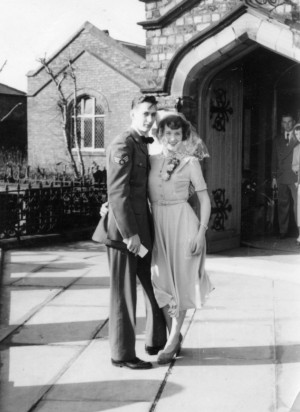
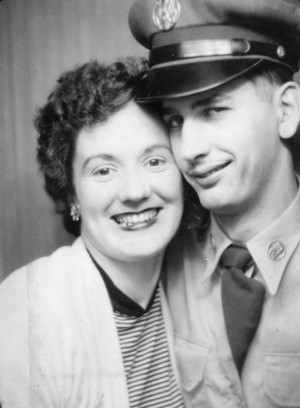
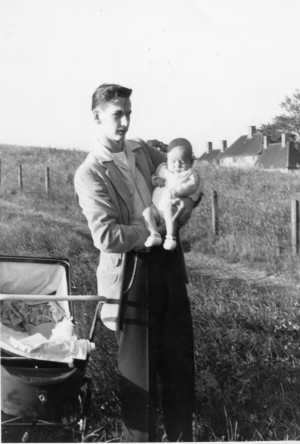
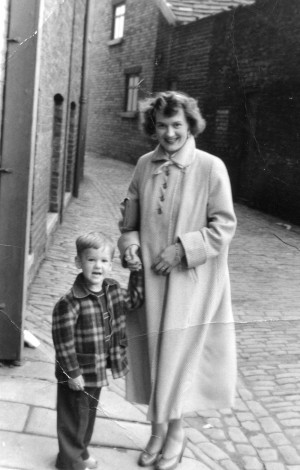
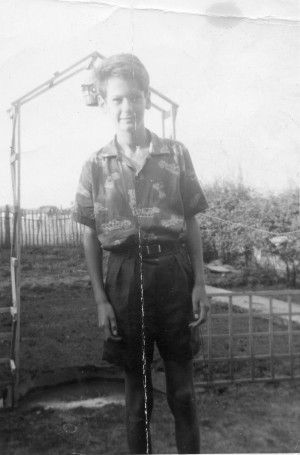
These posts are my favourite. It is amazing that so much happened in so short of time.
Great post. Isn’t it wonderful how some bad memories and good ones all create who we are today.
Great post. I was asked a question about you and it was great that I could look it up quickly.
Not bad for an old man, eh?
Hello,
I work for a 11plus tuition company and I found your blog whilst doing research. It was great to read before I really got an insight of how things were different back then.
Nowadays most children receive a lot preparation for the 11+ exam, they even sit mock exams to help them prepare for the day. Do you think you ended up on the right path even though you didn’t pass the exam?
It all worked out. I emigrated to the United States in my twenties. I earned a degree in engineering and I now work as a software engineer for the Department of Defense. Credit is due to my wife for insisting I get an education and to the United States for the plentiful opportunities.